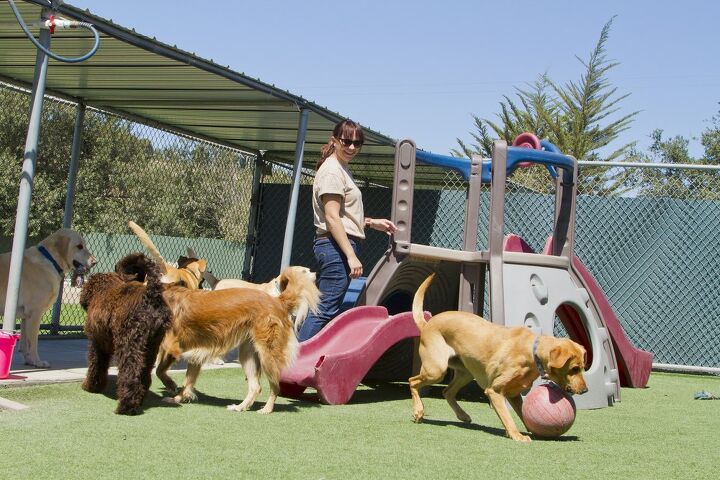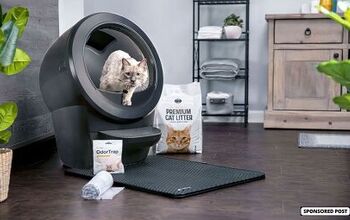What You Should Know Before Starting a Dog Boarding Business

Let’s get down to business – starting a dog boarding business
So, you are considering starting a dog boarding business? Perhaps you’ve learned a lot over the years and want to share that knowledge of dog care with others. Or you simply have all the perfect accommodations for dogs. Whatever it is, starting a dog boarding business can be a great idea. When it comes to opening such a business, it may seem as though you need little besides space to house the dogs and staff to feed and walk them. In reality, however, starting and maintaining a dog boarding business can be full of unexpected challenges. After all, it is never as simple as it seems at first glance. With the proper research and preparation, however, it is possible to create a thriving business. But, if you do it wrong, you could be faced with some serious problems. It is best to know exactly what such a business entails. So, if you are considering opening a dog boarding business, keep these tips in mind.
Questions to Ask Beforehand
Starting such an enterprise won’t be an easy task. Before you commit to starting your business, there are a few simple questions you need to ask yourself. What is your primary motivation for opening the business? Do you have the time and space to devote to the business? Is there a need for a dog boarding business in your area? If your primary motivation for opening a dog boarding business is to make easy money, you should think again – as is true of any business, you need money upfront to get your business started and then it could take some time before you start to see a profit. It could cost you anywhere between $25,000 and $80,000 to get your business off the ground.
In addition to the financial factors, you also need to think carefully about whether you have the time to devote to such a business. If you feel as though you are truly able to commit to a dog boarding business, your next question to answer is whether there is a need for such a business in your area. It doesn’t matter how much time you put into developing the business – if the need isn’t there, your business is unlikely to succeed. Another important issue to raise is the legality of having such a business in your area. You will need to research zoning and licensing requirements in your area to make sure it is legal for you to start any kind of business (particularly out of your home). Some cities and states can have tight rules and regulations on such matters, so careful research is key. And remember, there’s no such thing as asking too many questions – it is perfectly reasonable to want to be as informed as possible.
Proper Planning Is Key
Once you’ve determined that you’re ready to start your own dog boarding business, it’s time to get to work. And a great plan will help guide you through the entire process, as you’ll know what you need to do in order to make your dreams of working in the pet care industry a reality.
Here are a few tips that can help you get started. Then, once your dog boarding business is up and running, it will be a matter of properly managing it in order to maintain it for the long run and watch it grow over time.
Outline What Services You’ll Offer: In addition to boarding, will you also offer grooming and bathing services, or perhaps even canine training sessions? Will you only offer longer-term boarding, such as for people who are going on vacation for a few days, or will you be providing daycare services for people who just need someone to watch their dogs while they’re at work? Will you have a small store that will sell pet food, toys, and other pet care products to your customers?
All these questions need to be answered and made known to potential customers. If you want to make a better income, then certainly you can expand your service and go beyond simple dog boarding. But with each new service, you will likely have to expand on the number of employees, raising your costs. In the end, it is all about calculations and income.
Determine the Prices You’ll Charge for Your Services: After you establish the services that you’re planning on offering through your dog boarding business, it’s time to figure out your prices for those services.
Your price structure will depend on your location, as different markets might charge different amounts of money to customers for the same services. So do your research into what other local dog boarding facilities are charging. Sometimes it is the pricing that will set your business apart from the competition at first!
Beyond that, you also need to come up with prices that will allow you to make a large enough profit every day in order to keep your business running. This step will involve calculating your expenses to ensure they’ll be covered by the money you’re bringing in from sales. It will be easier to do this once you’ve found the right facility and you know what the overhead costs will be. Pricing can be difficult to balance, so take every expense and income into the calculation. Your prices need to be attractive enough to potential users, but not so low as to incur losses. And if your close competitor has lower prices – then try to offer a better service than theirs! Remember, higher prices need justification with quality service or products.
Find the Right Facility: Now that you know what services you’ll be offering to your customers, you can more easily find the ideal facility to make it all happen. Perhaps you’ll find a former dog boarding facility that you can revamp and make your own, or maybe you’ll find land on which you can build one from scratch. No matter what, check zoning regulations, local laws, and licensing requirements to ensure you’ll be able to run your business in a particular location.
As you search for your place of business, keep location in mind at all times. Will it be easy for customers to find your boarding facility? Will it be located in an area that gets plenty of traffic by car and by foot, so people who have never heard of your business before will learn about you?
Also, be sure that the facility you choose will give you enough space to house everything you need. Again, this will depend on the services that you’re planning on offering. For example, if you’re adding grooming services to the mix, you’ll need to have a space that will accommodate that. Check that the facility will be easy to keep clean and safe for your workers and the animals in your care. And ensure that temperature control will be simple throughout the year as well.
Tips for Better Management
Running a successful business is all about careful and quality management. A business that is run in chaos and “crossing the bridges as they come” is never easy to control and can quickly spiral into ruin. But a business that is carefully researched, set-up, and maintained, is sure to succeed. So always devote a certain part of your day for hard and dedicated work at your business – the effort is sure to pay off!
Once you have done the background research and have determined that opening a dog boarding business is definitely the way to go, you can start thinking about some of the details. A large percentage of new businesses fail due to poor management, so you would be wise to keep these basic management tips in mind before you start your own business:
- Treat your business as a business – you may have gotten into it because you love dogs, but if you don’t treat your business as such you won’t take it seriously. Keep your personal affinities and preferences at home. Business needs to be done after some rules, so always take them seriously and to heart. Your customers are bound to see it reflected in the business.
- Invest in effective marketing strategies to increase your sales and to get the name of your business out there. Keep in mind that in order to earn money – you need to spend money. Sometimes investments are the shortcut to earning big!
- Don’t miss out on opportunities to make extra income off existing clients – offer grooming services, sell toys, etc. A bunch of small steps can lead you a long way! Increase your income steadily by offering new and interesting services.
- Keep track of everything from the hours you spend on bookkeeping to the money you spend on upkeep of your boarding facilities – over time you will start to notice opportunities to increase efficiency.
- Reinvest in your business – when you first start your business you should put your early profits back into the business rather than putting them into your pocket. Here, patience is key. You’d be eager to spend all those first earnings, but the smartest thing is to play it cool and re-invest them into your business. This can only boost your efforts further, resulting in better earnings down the road.
- Don’t forget about savings – put away a little bit of money each week to help provide a cushion against disasters and unexpected costs. Just a little bit each week can amount to a lot of money at the end of the year. These savings can really come in handy in unexpected situations. You will thank yourself later.
- Hire quality staff – being an animal lover shouldn’t be the only criteria – look for people who are responsible and hardworking who will mesh with your existing staff. You cannot do everything by yourself. So don’t try to save money by refusing to hire new staff. It will affect the business badly.
Don’t Start Without Considering:
Odds are, you haven’t just thought of this nilly-willy or because you love dogs so much. (Although maybe you have, and that’s okay too. Just be sure to pay attention to the following tips!)
It’s quite a possibility that you have already worked in a doggy day care or kennel and this maybe inspired you to get into the biz yourself. If not, it’s something that may be super beneficial to you as you open your own, and working in an established operation beforehand will give you a wealth of knowledge and experience money just can’t buy. If you work in an established boarding or kenneling business, you’ll be able to see what works (and what doesn’t) and how you’d like to operate in your own right. You’ll gain good experience with animal behaviors from different animals, how to handle different health issues and general maintenance issues that may come up with your own facility.
If you’ve not worked as a vet tech, pet sitter, dog walker or animal shelter employee or volunteer, doing so is also something that could bring valuable, first-hand experience on the ‘dime’, so-to-speak, of another organization before you jump in on your own.
You also want to consider finding local membership groups for kennel owners that will give you insight and education opportunities, as well as networking situations that may be advantageous for different circumstances you may find yourself or your facilities in. Like-minded people committed to the same concepts of quality kenneling are great communities to find, and ones that can enrich your experience and that of your potential customers as well.
We also can’t stress protecting yourself and your customers enough. Consider whether you’ll be a business, a sole proprietorship, a limited liability company or something else altogether. Talk with others in the industry and your attorney.
Be SURE to have insurance–for you and for your clients, and make sure you have an established protocol and partnership for emergency situations. They WILL come up, and preparation is the key to surviving them.
Starting a business isn’t easy and it definitely isn’t something you should jump into without proper forethought and preparation. If you feel as though you have the time, the financial means and the drive to successfully operate a dog boarding business, however, don’t let anything stop you from accomplishing your goals!

Kate Barrington is the loving owner of two cats (Bagel and Munchkin) and a noisy herd of guinea pigs. Having grown up with golden retrievers, Kate has a great deal of experience with dogs but labels herself a lover of all pets. Having received a Bachelor's degree in English, Kate has combined her love for pets and her passion for writing to create her own freelance writing business, specializing in the pet niche.
More by Kate Barrington























